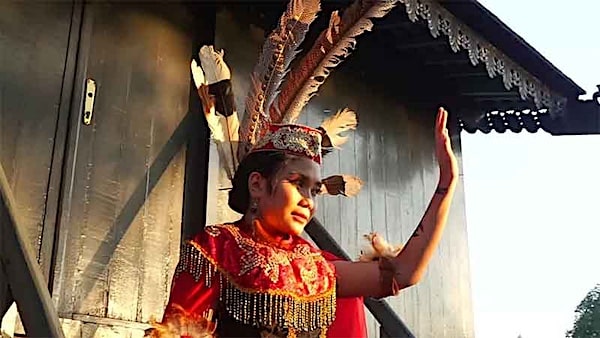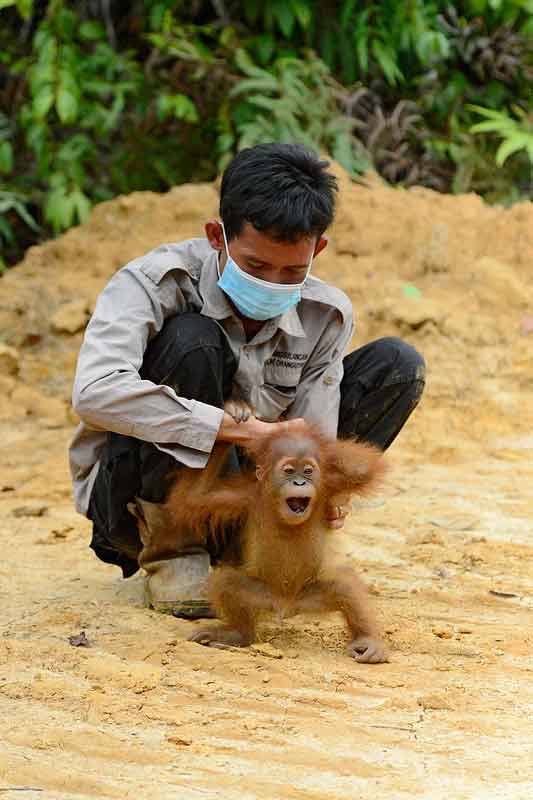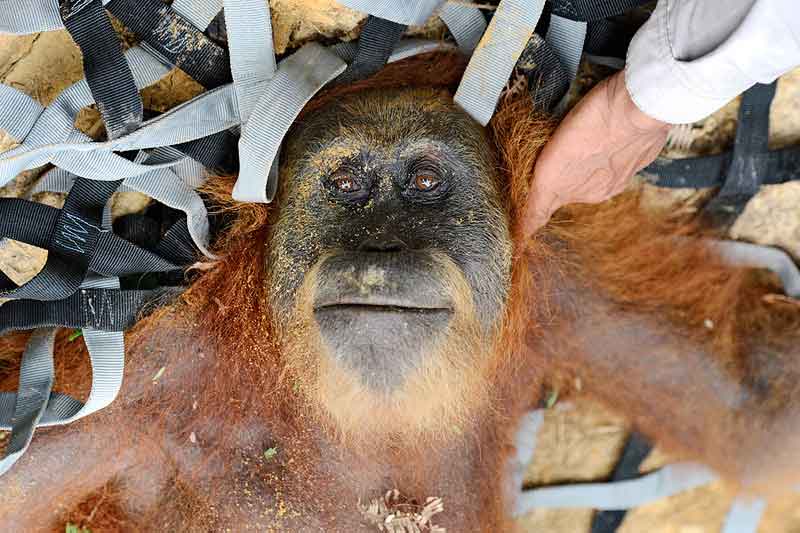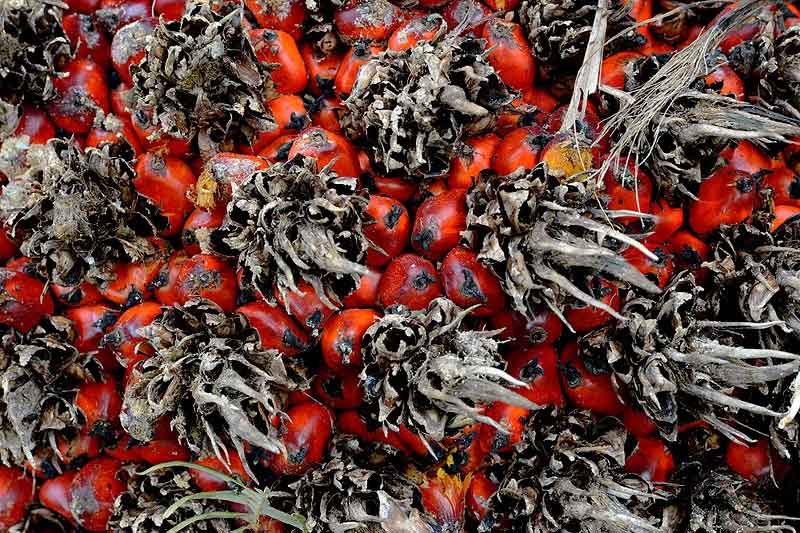The Dayak peoples of Borneo have been fiercely resisting the encroachment of palm oil plantations on their ancestral lands for many decades. This article by Dayak Ethnographer Dr Setia Budhi along with Palm Oil Detectives’ Founder Athena delves into the heart of their struggle, showcasing their resilience and highlighting the pervasive greenwashing by the palm oil industry.
Resisting Infiltration
A lone Dayak village in Borneo has successfully resisted corporate infiltration by global palm oil giants. Meanwhile the encroachment of palm oil expansion around them closes in. Dr. Setia Budhi, a Dayak ethnographer and human rights advocate, visited this village to observe their progress. He notes,
Dayaks DO NOT want their lands turned to palm oil. They depend on rainforests for food and weaving, do not want their roaming area disturbed, and do not want to lose their land.
Rainforests Are Vital For Dayak Culture
Dayak villages depend heavily on the rainforest and peatlands for their natural resources. The rainforest provides them with food and materials for weaving rattan. Their roaming areas are vast, essential for hunting, fishing, and foraging for herbs and medicines.
Greenwashing and Media Manipulation
The palm oil industry’s narrative in Indonesia and Malaysia often portrays palm oil as beneficial for economic growth and environmental sustainability. However, this is far from the reality experienced by the Dayak people. Dr. Setia Budhi states,
In Indonesia and Malaysia’s media, people can’t distinguish fact from fiction on palm oil. A positive narrative about Dayaks and palm oil is greenwashing. This is NOT the lived reality for Dayak people
A recent report by the World Health Organisation (WHO) found that the palm oil industry used the same aggressive tactics for greenwashing akin to the tobacco and alcohol industries. Read more
One study into media messaging in SE Asia found there was similarities between climate change denialism narratives and palm oil ecocide denialism narratives in media storytelling.
We found that media reporting of the denialist narrative is more prevalent than that of the peer-reviewed science consensus-view that palm oil plantations on tropical peat could cause excessive greenhouse gas emissions and enhance the risk of fires.
Our article alerts to the continuation of unsustainable practices as justified by the media to the public, and that the prevalence of these denialist narratives constitute a significant obstacle in resolving pressing issues such as transboundary haze, biodiversity loss, and land-use change related greenhouse gas emissions in Southeast Asia.
Palm Oil: A Harsh Human Rights Reality
The truth about palm oil’s impact is starkly different from the media portrayal. Reports from human rights organisations like Human Rights Watch highlight the severe consequences faced by indigenous communities. Francesca, an Iban Dayak mother, recounted how her home was torched by company representatives when her family refused to sell their land (Human Rights Watch, 2019).
Economic Exploitation and Debt Peonage
Dayak communities that succumb to selling their land often find themselves working as labourers on their ancestral lands for meagre wages. This economic exploitation and debt peonage is compounded by the aggressive land acquisition tactics of palm oil companies, which often undervalue the land they purchase.
Far-Reaching Environmental Impacts to Air, Land, Water and Species
The environmental degradation caused by palm oil plantations is immense. Deforestation, pollution, habitat destruction and the killing of rare endangered animals are common occurrences in areas dominated by palm oil cultivation.
These images of deforestation and pollution run-off in palm oil plantations underscore the environmental toll to orangutans and many 1000’s of other animals. (Craig Jones Wildlife Photography, 2021).
The Simulacrum of Palm Oil
Famed political theorist Jean Baudrillard’s concept of Simulacra and Hyperreality aptly describes the current media landscape surrounding palm oil. The media creates a simulacrum, a distorted reality that benefits the palm oil industry by glossing over the severe environmental and social impacts (Baudrillard, 1981).
The Dayak people’s resistance against palm oil expansion is a testament to their resilience and deep connection to their ancestral lands. It is crucial to recognise and support their struggle, exposing the greenwashing tactics of the palm oil industry and advocating for genuine environmental and social justice.
Conclusion: Real Solutions for Real Change
To address the ongoing devastation caused by palm oil production, a combination of consumer advocacy, boycotts, empowering indigenous people’s land rights and self-determination and advocating for large-scale policy change can make a real difference.




